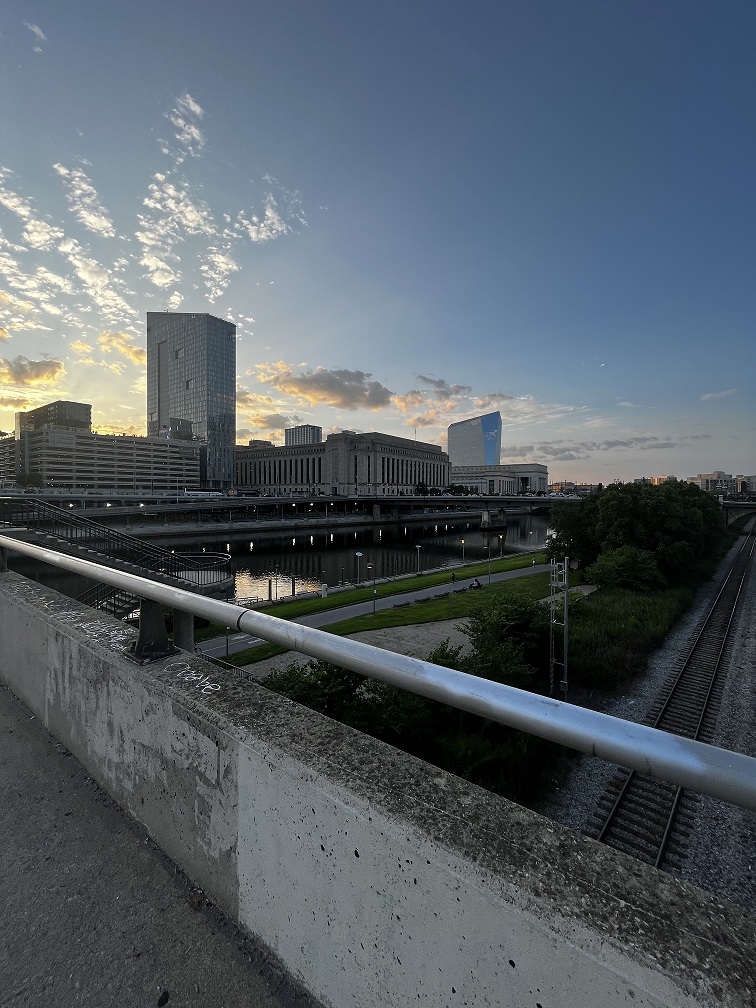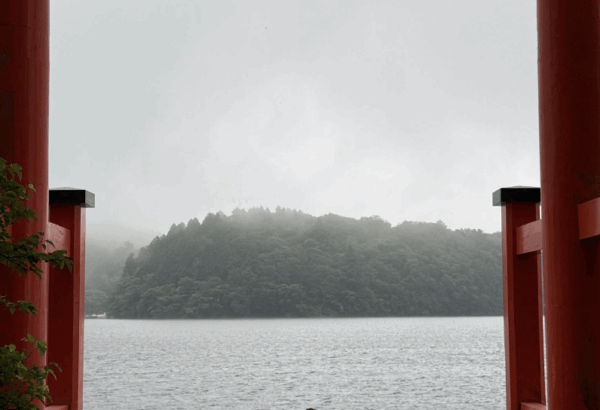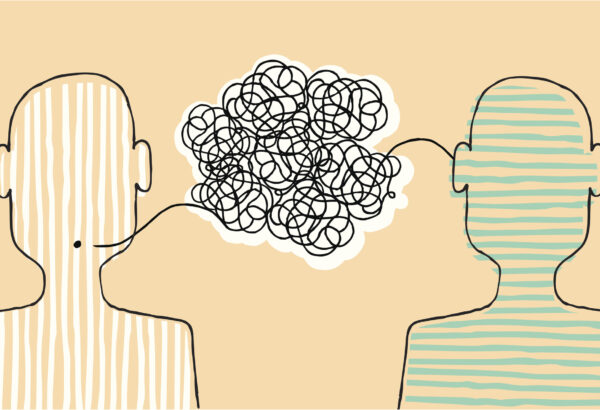OVERCOMING FEARS
Two populations I have previously shied away from caring for are cancer patients and geriatric patients. From a young age, I was exposed to family members who were dying, making death a very concrete fact for me early on. As a non-religious person, I see death as the end in a lot of ways. I have deep respect for oncology nurses but never felt comfortable with the idea of caring for cancer patients myself. Yet, over the course of the summer, I have been interacting regularly with cancer patients who are on my hospital floor starting new treatments, entering comfort care, and actively receiving chemotherapy and radiation. Rather than feeling emotionally overwhelmed when working with these patients, I found myself thinking of both my maternal and paternal grandmothers whom I lost when I was a child.
During my externship, there was one patient on my floor who vividly reminded me of my grandfather, one elderly family member who is still alive and with whom I have had an amazing relationship. There is no one prouder of me becoming a nurse than my grandpa. He tells every healthcare provider he interacts with about how his two granddaughters are nursing students. The patient was a sweet elderly man who was so kind, patient, and alone. He came up to my floor from the emergency room during a shift change and instead of the hamburger he thought he’d ordered; his dinner was a turkey sandwich. It wasn’t the hamburger he was most upset about but the ice cream. One thing well known about my grandpa is he has the biggest, sweet tooth. He too would be very upset about not getting ice cream. I called the kitchen and asked if they would send up ice cream for my patient. The joy radiated on my patient’s face when a short time later I walked in holding two mini-ice creams. He asked how to pronounce my name and if I was going to be back tomorrow. I felt like I’d done something good and that I’d made my grandpa proud of me. I realized it wasn’t geriatric nursing but death and caring for the individual who is dying that has scared me.
MOVING BEYOND FEAR OF DEATH TO HUMILITY AND ATTENTIVE CARE
One common theme of my externship is confronting the areas of nursing that scared me the most. A couple of weeks ago, I walked into my shift at 6:45 AM, put my stuff down, looked at my assignment and made my way to the nurses’ station for safety huddle before the start of my shift. I caught whisperings that a patient had died, a hospice patient, and it didn’t take long for me to figure out the patient was mine for the upcoming shift. I was filled with a sense of fear because it was going to my responsibility along with that of my preceptor’s to do the post-mortem care. That was the beginning of a hectic morning.
What I learned about death in a hospital is that nurses have four hours to get the body of the deceased to the morgue. This can be especially tricky if the patient’s family isn’t present with the person when they pass. Hospice care, and specifically inpatient hospice care, involves a lot of stretching of hospital rules. Nurses allow more visitors, more time, provisions of drinks and snacks, and the placement of a butterfly on the patient’s door to alert others. Everything is designed at making a person who is at the end of their life as comfortable, safe, and peaceful as possible. And that is what we did.
This wasn’t my first time caring for someone who was in hospice care. My first hospice patient was more difficult. I watched the patient quickly decline over the course of my three shifts—from fully responsive to a term we use called “actively dying”. And while I paused many times in the doorway waiting to observe my patient’s respirations, I can say the care I provided made me proud. And at the end of those three shifts, I told my preceptor I would do it again, because, more than anything, I felt humbled to be trusted to care for someone as they left this life. I wanted to do everything possible to make both my patient and her family as comfortable and as supported as possible during this difficult transition.
In these weeks of my internship, my view of death and dying has changed substantially. It is a transformative experience to walk into a patient’s room and not really have a patient anymore. The care taking is shifted from the person in the hospital bed to the family members, the loved ones of the person who has passed. You modify your care to make them as comfortable and as at peace as possible as they wrestle with the fact that their loved one is no longer with them. It’s an exercise in respect and of preserving dignity. Because my patient hadn’t had family with him when he passed, the night nurse notified both his family members and the staff of the hospice team. This began a long series of events before we even began postmortem care. This patient’s family members poured in. His sons, nieces, nephews, sisters, all fit into his tiny hospital room. They cried and screamed and almost collapsed in the hallway and sat with him and his body for hours. All the while, we as staff wrestled with the clock that we were on to provide the care we needed to. Eventually, with lots of urging, extra time, explanation of the care we as a nursing team had provided last night, and of the dying process, the family left his room five hours after the patient had died. It’s hard to reconcile this need to rush, this need to move through certain steps, because the patient is in no rush, time simply doesn’t exist for them anymore.
My exposure to death as a child instilled in me a deep sense of value for each day and being able to express love to those in my life. I am driven by a need to not waste the love I have for people. I say I love you before I hang up every phone call, before I go to sleep at night, and when friends are leaving my house. I’ve chosen a profession where I care for people in the hardest moments of their life to hopefully put them on a path of health that gives them a little more time to have love in their life.
When I walked into my patient’s room, confronted with immediate death in a true, undressed-up manner, I expected to feel more emotions than I did. Perhaps it was because I didn’t know the patient very well or because I knew ahead of time that I would be caring for this patient, or because I was comforted by the fact that the patient had experienced love from his family, or maybe because the patient was on hospice. I don’t really know why but in that moment, I felt humility and a pressure on my chest. It didn’t feel exactly like I was going to cry, but it was my body’s way of letting me know that something was wrong. As I pulled out the patient’s IV and his foley catheter, I talked with my nurse and our charge nurse who was walking us through this process (it was both of our first times). Our movements were respectful, but we weren’t solemn in our conversation. Together, the three of us put a barrier up. We wrapped the patient’s hands and feet in bandages, we were gentle, we were calm, we were collected and when we zipped the patient into a body bag together, we all stood there for a second and acknowledged the necessity of pulling part of yourself out of that situation. I protected myself from the difficult emotions so that I could go on with my day and care for my other patients. I pulled a part of myself out of the situation so when you talk about it with the family, they know you’re okay-because you are. But you keep part of yourself in it so that person’s body knows dignity even after its last breath.
Looking back to what I thought I could handle as a first-year nursing student I now know I was mistaken. Death and caring for a patient who is dying doesn’t scare me, it humbles me. I wouldn’t want to wake up and do it every day for my career, but I wouldn’t hide from it either. And I would help any of my colleagues who felt uncomfortable doing it. Death is unknown, but the dying process, the care a nurse provides after is now known. And that brings me a little bit of comfort. I still know what I want to do and I’m sure about my decision to pursue reproductive endocrinology and infertility, but I’ve also realized I feel a lot less strongly about the nursing I said I didn’t want to do and that I am capable of treating patients with cancer and those facing the final days of life.





